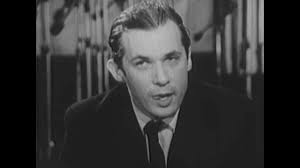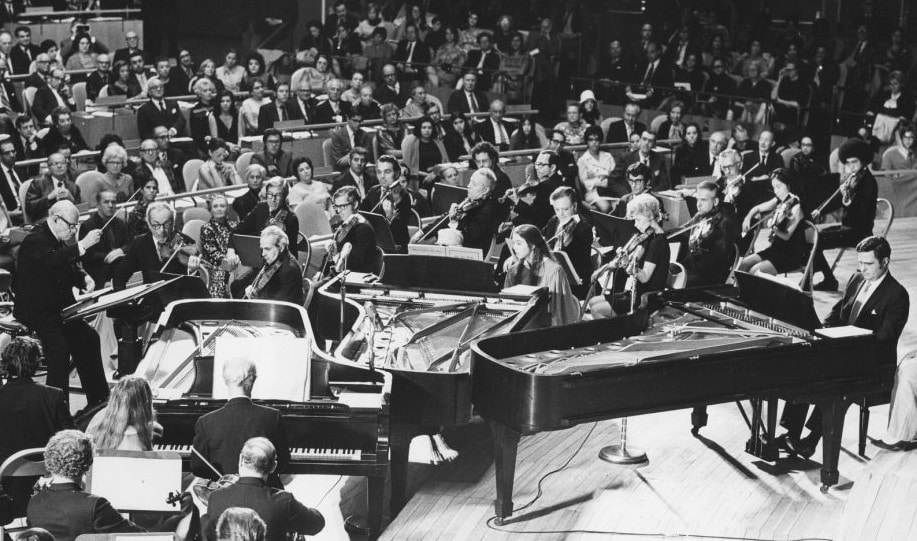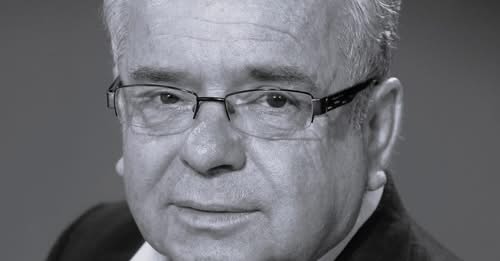The Ah-pah-ssi-onata by Glenn Gould
Daily Comfort ZoneSlowest ever.
Our mutual friend Daniel Poulin writes:
“The Appassionata Scandal” is the title of some YouTube video. Gould would have loved it. He knew quite well that his extremely slow version of Beethoven’s beloved passionate work would trigger all sorts of reactions. Surprisingly, not all music lovers were shocked by his unique approach to a sonata he officially disliked. A few samples:
— “I find it funny when people use the word “scandal” like this. That just shows how boring and same many interpretations have become. Ironic that they want more sameness, or else it is a scandal”.
— “Scandal or not, I love what he does with this”.
— “This isn’t scandal at all! This is so emotional, and just so, so, so beautiful! Gould is pure genius!”
— “I don’t see what is so crazy about this recording. It is constantly engaging and emotional. Nor is the conception entirely radical or at odds with “traditional” readings – it still manages to capture what we recognize as the essence of the Appassionata. It is, as with all Gould recordings, an immaculately structured, technically flawless, and dedicated performance of the piece.”
— “Although it was quite a shock when first hearing this, I must admit the more I listened to it, the more it grew to me. He was constantly exploring new grounds which is hard to do in the classical music scene and any serious musician who is able to look beyond his own ego and personal taste, should be grateful for that. Most importantly, I admire his courage to do what he believed was right and to stay true to himself.”
— “Listen to the third movement. Gould eventually catches up; it’s glorious.”
— “Isn’t it great that still today there is so much discussion about this work!”
In one of our rare tensed discussion about his recordings over the telephone one late evening I recall Glenn being quite adamant: “The Appassionata was created when Beethoven was preoccupied with being Beethoven; he was pompous and defiant to the point of over confidence. When his furious onslaughts find their mark, it works; but in the Appassionata his method does not work”. Gould rarely sounded impatient with me but on this particular occasion I could feel the tension escalating. So to defuse the situation I told him I really liked the Andante, even suggesting it could be used as a background sound track for an erotic amourous scene in a love story movie. He bursted out laughing saying “There is no sensuality in the Appassionata”.
An average performance of the entire Appassionata sonata lasts about twenty-five minutes. Gould’s performance takes more than 31 minutes.
I. Allegro assai 15’01”
II. Andante con moto – attaca 11’08”
III. Allegro ma non troppo – Presto 5’23”






Whatever. I can play it even more slowly.
Similar in spirit to this:
https://www.youtube.com/watch?v=-Dgnbbu-mQA
+ 2nd and 3rd movements also available.
35+ minutes
“If Florence Foster Jenkins was a pianist…”
Thanks for the link. If ever there was a way to appreciate Gould’s superior talent, this is it.
Not a ‘scandal’ at all. Just a bad performance.
Glen Gould was a phenomenal pianist. As ever- a fascinating performance. But his comments ‘Beethoven’s methods do not work’ could- dare I say- equally apply to his own performance. The first movement is just too slow- the great tune sags with no impetus. The finale is most successful with Gould’s conservative tempo allowing for great clarity between the voices & not just the usual out of control rollercoaster. Part of the problem in Pre Romantic piano music is the decay of the sound on less well developed pianos. In The Viennese Classicists- its necessary to often adopt swifter tempi to sustain the legato line- particularly in the slower/reflective movements. Afterall- the Appassionata is not a Chopin Nocturne, a Debussy Reverie or a Scriabin tone poem- where you can go as slow as you like if you keep the sustain pedal down! I suspect- as usual with Gould- despite his great musical genius- he was being deliberately controversial & iconoclastic & was fully aware of the perversity of his interpretation to ruffle a few feathers.
Personally, I found it fascinating, although I can see it would not suit all tastes . Even the finale’s coda is not taken at the pace one hears too often today, when it becomes a meaningless jumble of notes
“‘The Appassionata was created when Beethoven was preoccupied with being Beethoven; he was pompous and defiant to the point of over-confidence.'” Hmm… sounds more like Gould himself in his determination to pound the square peg of Beethoven into the round hole of his concept of what a “good” Beethoven sonata should sound like. I like much of Gould’s Beethoven, but as far as I’m concerned, this is a party record.
Scene: Indiana University, Bloomington.
Event: Weekly Master Class
Instructor: Abbey Simon
“And now for the slow movement”.
Unlistenable. Not ‘a scandal’ but simply stupid.
Performers who wilfully stand between the work and its audience should either withdraw from the stage or becoming a composer him/herself.
Many recordings of GG are ego tripping on the expense of the music, as if he wanted to convey: I’m bigger than the music, than the composer. But he could not compose.
Is it possible that Gould was so much influenced by Richter’s slower than usual (but highly successful) recording of Schubert’s D960 that he wanted to apply what he believed he learned from it to this sonata? I’m no authority but I wonder if there’s a connection here.
Ah…
Wow!
About 20 years ago a new set of recordings of Beethoven symphonies came out, David Zinman, conducting the Zurich Tonhalle. Per the liner notes, new Barenreiter editions. Played faster than any I had heard before. Everything was up-tempo.
Brought new meaning, oh, it’s a old cliche, but I loved these performances especially of the first 2, 5, and 6. I heard new instruments on these CDs. Just an opine. Gould is fine, not a god.
Anything he does is always interesting, even if it doesn’t happen to match with my tastes. Gould was a thinker and a scholar, and his performances are the result of a process he went through.
Look at his famous Brahms first concerto performance with Bernstein and check out Bernsteins performance with Zimmerman decades later and tempo-wise you’ll be shocked at the similarity.